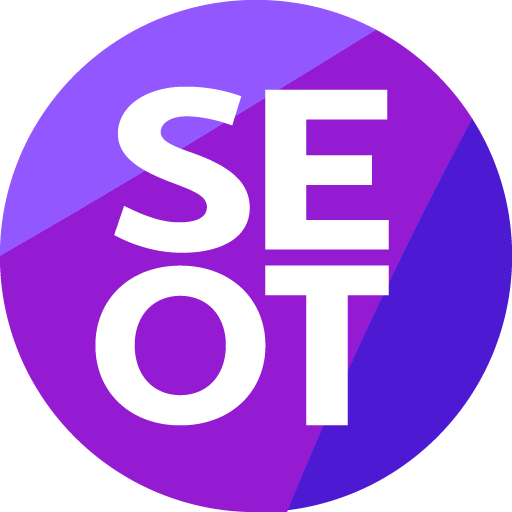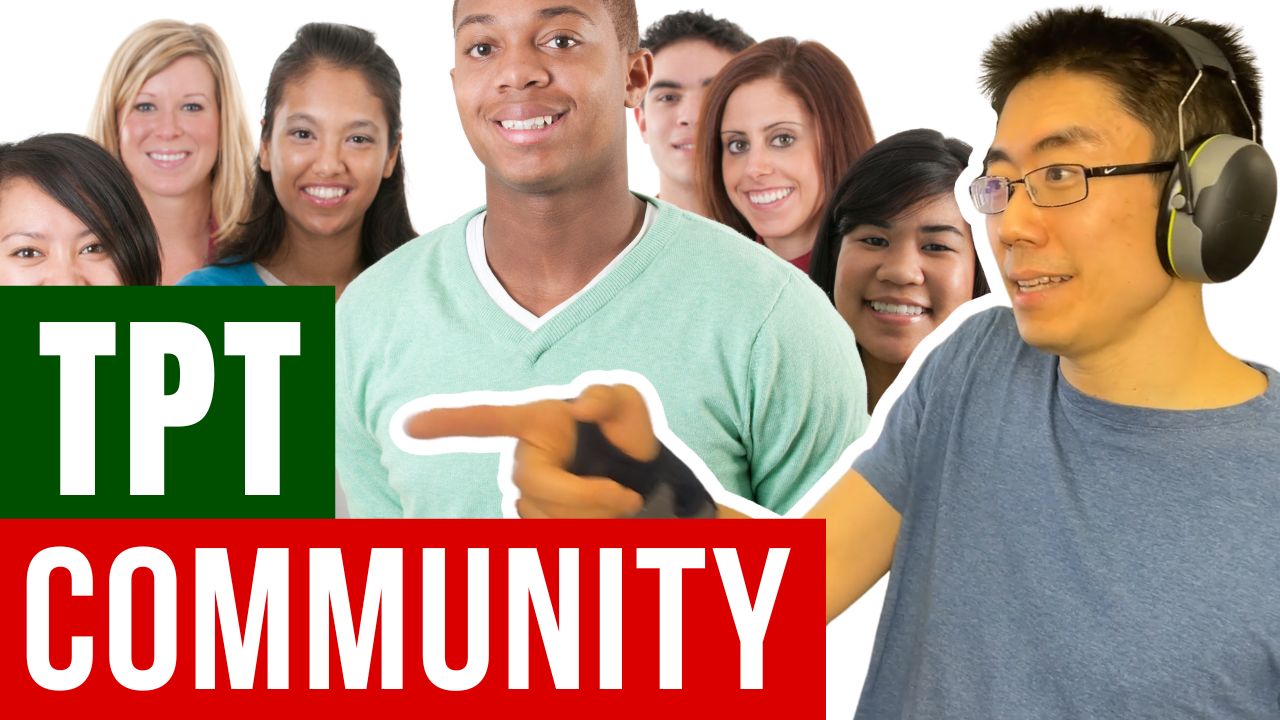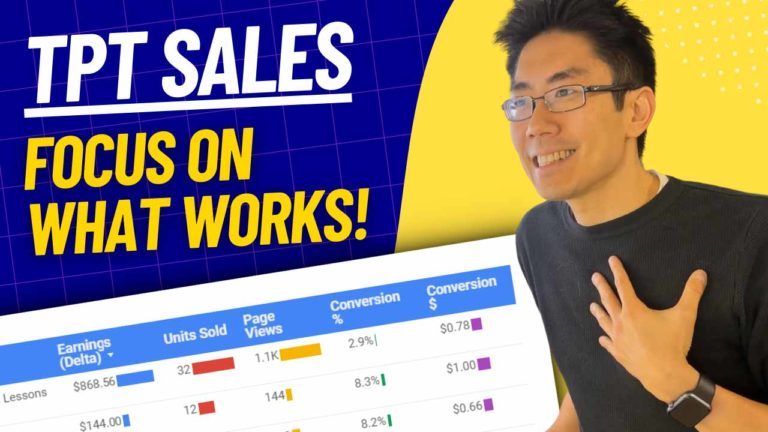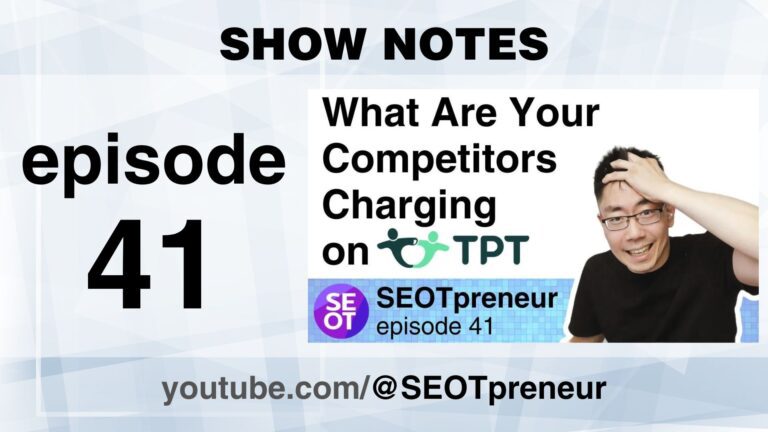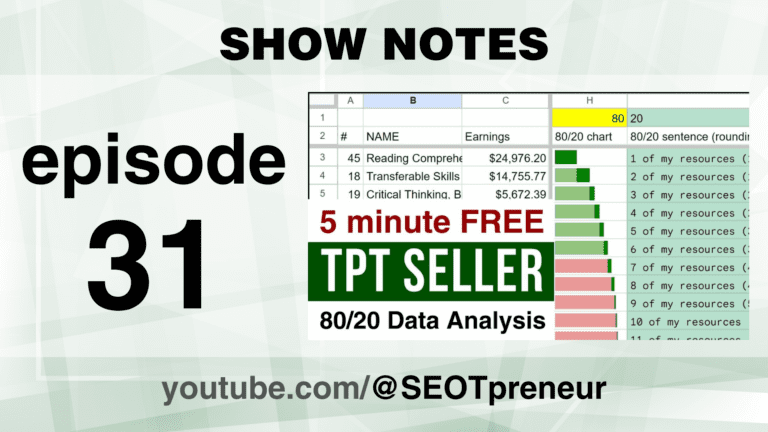Episode 018
This is the show notes page for the episode about the TPT Avengers.
If you have already watched the episode, you’re probably looking for this page.
If you haven’t watched the episode, you can watch it on YouTube.
One day, I’ll have time to write more in here…
Here’s the discussion guide.
Video Transcript
Hey teachers, I’m looking to form a team of Earth’s Mightiest Heroes to fight the forces of evil. Do you want to join?
Wait, what? Wrong Multiverse? This is not the Marvel Cinematic Universe?
My bad.
Hey TPT sellers, I’m looking to form a team of Earth’s Mightiest Heroes. Do you want to join? Check this out!
Hey there, my name is Mike Fuchigami, and I am the host of the SEOTpreneur Community. Today, we’re going to be talking about building a community of lifelong learners who are interested in personal development and Financial Freedom. The two go hand in hand.
This community is about people who want both.
By personal development, I’m talking about social-emotional learning for us – becoming a student of ourselves, powering up our ability and our resilience.
In terms of Financial Freedom, I’m talking about teacher side hustle. This is not quick or easy, but I believe that with an SEOT mindset (and so by that, I mean Strategies, Effort, Optimization, and Tinkering)
I think if we use a process to achieve our goals rather than just trying and seeing what happens, sort of haphazardly, I think that can help us sort of accelerate our growth.
Oftentimes, TPT sellers are caught on this hamster wheel where all they are doing is producing content, and it’s not producing the results they want, or it’s producing linear results at best.
I think if we take a step back and look at the big picture,
- if we maybe try some different strategies
- if we pay attention to the data and optimize what we’re doing
- if we tinker and try new things, that probably won’t work, but maybe they will.
I think if we sort of make this an intentional process, I think that will help us to achieve our goals –
which is to increase our sales on TPT.
By doing that, I think if we are reflective students of ourselves, I think that can level up our personal development.
Why? Because achieving Financial Freedom, becoming a top seller in TPT is not easy. It’s hard work, but it’s a worthwhile goal. I think if we sort of figure out what works for us and what doesn’t work for us – if we pay attention to ourselves, then I think we can develop grit, resilience, and tenacity. That is important because then, hey, if I could get through this or I’ve gone through tougher times before; I can get through this as well.
So if we are able to achieve success on that TPT ladder and that becomes a story of resilience, then maybe we can apply it to other areas of our life.
Some of us teach actively in the classroom, and this becomes a way to indirectly empower students because we – naturally strong teachers – naturally take our life experiences and we share them with our students. What works for us may work for them, and if not, the process may work for them.
So this is important because
- by figuring out how to do difficult things
- by becoming students of ourselves
- by developing this grit and resilience, and tenacity that we share with our students
It helps them to survive and thrive in a changing world. Because, quite frankly, in their world, we don’t know what problems they’re going to be encountering. They’re probably going to have to have a side hustle to figure out how to make ends meet and survive in their world.
So, this is sort of a cyclical process – those of you who have been watching this channel for a bit know that I feel that selling on TPT is the ultimate 21st learning task. It wraps personal development with Financial Freedom.
I like it because it’s an authentic, real-world task. It’s not hypothetical like, hey, come up with an advertising campaign for this product. We’re actually advertising products that we’re selling ourselves.
It is personally meaningful because it’s hard.
And hard work – if we get there – is rewarding.
And, if we get there, it’s financially rewarding.
The solution hasn’t been invented yet. By that, I mean, yes, we know there are millionaire teachers successful in TPT, but our solution hasn’t been invented. We haven’t figured out how to do that. That’s something that we’re still working on.
I like it because there are multiple pathways up to the top.
- What works for you may not work for me!
- But I know that there are different ways that we can climb this financial freedom pathway.
Ultimately what’s great about this – what makes this a 21st Century Learning task is that it’s controversial. There are multiple points of view:
- Some of us love this idea of selling on TPT.
- Others think it’s wrong – there’s so much copyright infringement on TPT.
- Or maybe it’s wrong because teachers shouldn’t have to buy resources to supplement what they need to teach in the classroom.
So there are many different angles that we can talk about this.
The reality is that life is sometimes messy. I think selling on TPT is a common task that we can do together individually but together and help each other out along the way.
Mike, just tell me what kind of products I should sell on TPT!
Maybe you found this channel searching up some sort of topic on TPT – trying to figure out what to do.
And that’s true; I could give you a technical solution. (And if you have a question, just ask in the comments, and I’ll respond there.)
But, I think we need to reframe this task because simply telling you what to do step by step is only a solution now. It’s not a solution that’ll guarantee work in the future.
So, let’s reframe this task of selling on TPT using the CASEL 5.
How do you say that CASEL FIVE?
So let’s reframe this task using the CASEL FIVE. I’m just going to go to their website so we can zoom in.
There we go. Lots of you have seen this before, but basically, this is the CASEL FIVE – their model of doing social-emotional learning in the classroom where basically
- we help out students with social-emotional learning skills,
- and that trickles out to the classroom
- which affects our schools
- which goes to our families and caregivers
- Which ultimately helps empower the communities.
I love it. But what I’d like to do is evaluate this framework from the perspective of teacher social-emotional
learning.
- Not like, hey, I’m a teacher. Who is doing social-emotion learning for us?
- More like, hey, I’m a person, and I’m going to do social-emotional learning for myself. And that will help me see the value of this, which will translate naturally into the classroom, etc., etc.
So, I think selling on TPT is the ultimate SEL opportunity because it requires an incredible amount of self-awareness. I have to be monitoring how I’m doing because
- It’s hard.
- I’m gonna get frustrated.
- I’m trying a bunch of things.
- It’s not working
- I’m frustrated because I see Mike talk about his earnings.
- Mike’s frustrated because he talks about other people who are making more than him.
Knowing when to take the foot off the pedal or to press down on the pedal – I think that requires a level of self-awareness that can transfer to other areas.
I need self-management skills because success is dependent on consistent steps toward moving the needle.
- I can work on stuff every day, but if I’m not going towards my goals (i.e. if my goal might be producing however many products per week,) whatever it might be…
- …if I’m not moving the needle, then being able to manage myself to do that requires discipline.
It also requires discipline not to just crank out the products because realizing that just simply producing effort isn’t always beneficial requires self-management.
You have to look back at the big picture and say okay, I’m going to choose not to spend time cranking out products. Instead, I’m going to try to optimize what I do by looking at the data. So rather than cranking out products, I’m spending time looking at the data.
For some of us, that’s really hard because we think cranking out products is the way to success. It
intuitively makes sense – I mean, the more products you have, the more you can sell, right?
Okay, selling on TPT requires social awareness because I need to know whether this lesson is going to work in the classroom – not necessarily in the sense of,
- hey, I teach – I’m not in North America
- I know that TPT is mostly a North American market
- So, will this lesson work with that learning community? Maybe, maybe not.
But also within the sense of, hey, if you’ve noticed on TPT for a while now, they’ve had a little warning that says, hey, we notice that you’re talking about a sensitive topic that needs to be addressed with consideration.
If you’re talking about Black History Month – and so being aware of the impact of how your lessons might portray a group of people that requires social awareness, right?
Being aware of what season we’re in – so modifying your products for seasons – like creating seasonal versions of your products – requires social awareness.
What works here may not work there.
Selling on TPT requires that conscious ability to look and say,
- Hey, actually, this probably won’t work for this group of people or
- If I’m trying to sell that group of people, maybe I need to do that…
Relationship skills – when you’re first starting out to sell on TPT, you’re just finding anything, and you’re seeing what works.
Over time, as you start to get on that TPT hamster wheel of creating content, you start to realize you’re building a relationship with the teachers who buy your products.
If you understand what they’re looking for, you can make sure that you communicate how your product meets their needs, or you can adapt your product so that they can meet their needs.
Likewise, we’re in a relationship with TPT.
- They are the platform that we sell on.
- It’s a mutually beneficial symbiotic relationship.
- So how is your relationship working with the platform?
- How are you helping to make it better?
- What are you concerned about?
Ultimately, though, my favorite part here is this one here: responsible decision-making.
This is more than just Integrity – like doing the right thing when no one’s watching. We’ll tell that to students.
This is more about figuring out what the right thing is and then doing a cost-benefit analysis about whether or not this will actually work in my circumstance.
I’ll give you an example. In this YouTube video, I have decided to show you the CASEL wheel, even though here, at the bottom, it says “copyright 2020 CASEL. All Rights Reserved.”
In American copyright law…
Again, not a lawyer; this is just entertainment – I’m sharing funny anecdotes and personal experiences.
For everything, please consult with a lawyer.
But anyways, my understanding of American copyright law is that whatever they create is automatically copyrighted. They own the copyrights too.
They’re simply putting this here at the bottom to remind us that they own the rights! Probably because they weren’t happy with the way people were using this image.
Just because I think I can use this fairly – there’s a fair use clause (different countries have different rules), but essentially I think there’s a fair use case where if I use something as commentary – as in I’m discussing the value of this, I’m talking about how it could apply in this situation about selling on TPT.
I think I am applying a commentary analysis on this, so I think that’s fair use.
But maybe CASEL will disagree, and they’re like yeah, we don’t like the way that you’re using that.
So then maybe they might get their lawyers (“yeah, we agree with you.”)
Their lawyers might send me a cease and desist (“right, hey Mike, take it down) or more accurately, they’d probably go to YouTube, which is a platform provider, and say (“hey, we’re the owners of this intellectual property, take down that video.”)
I don’t know what YouTube’s process is. They have a process – all platforms have to follow the Digital Millennium Copyright Act (DMCA) – anyways, they have a process.
I know on TPT, if someone files a copyright complaint against your product, TPT will send you a little note saying hey, we received a copyright complaint.
- you either have to say that you’re going to fight it or
- we’re going to take down your stuff and give back all the money in sales and charge you back for the money.
So then I have to decide, okay, am I going to get a lawyer to defend my determination that I think this is fair use?
Then I have to reply back to TPT, and then TPT might say, “Okay, you’ve replied back so that you’re willing to accept the legal – whatever legal option that the copyright owner has,” and so then they’ll put my resource back up.
Then the copyright owner gets to decide, “okay, we’re going to take legal action against you.” Then, their lawyers contact me, and then I have to figure out if I’m going to get a lawyer and go to court.
It doesn’t matter if I think I’m using this as fair use, and quite frankly, it doesn’t matter what they think if this is fair use.
It doesn’t matter what our lawyers think if this is fair use or not.
What matters is what the court decides, what a judge decides.
Again, not a lawyer – just my interpretation of how this works.
But a judge will decide, “yeah, you know what, this is fair use,” or “this is not fair use.”
The judge makes a determination, and then I imagine legal fees will get paid out.
In this section of responsible decision-making, I have to make a decision whether or not to use this image that is not my intellectual property.
But I have to decide whether I think this is fair use, and if it gets challenged, what am I going to do about that?
And some of you might be, “yeah I don’t really have a problem like this. I’m just going to put stuff up.”
Others of you might be like, “yeah, you know what, I’m just going to stay away from anything that sort of iffy like that.”
I love it. There’s so much social-emotional learning and personal development that we can do through this challenge of trying to sell on TPT.
The way I am right now is not going to be the way [I am] in the future right? I learn from my mistakes, hopefully, and so this is an ongoing cycle.
So wait, this isn’t about the Avengers?
Not exactly, but it is about forming a team of Earth’s Mightiest Heroes, and by that, I mean forming a team of lifelong learners who want to develop themselves and go for Financial Freedom.
How do you know if you’re a good fit for the team?
Okay, well, if you’re still watching the video right now, quite frankly, chances are you’re a good fit.
But let’s narrow down that with some criteria.
You are probably a good fit for the team if you watch this video about how to build a successful TPT store and you agree with the core ideas.
Those of you who are regulars on this channel have already watched this video, but if you’re new to the channel: Welcome, hey, my name is Mike! Nice to meet you! Ask questions in the comments!
But watch this video because if you agree with this video, we probably share some core values that even though there are some differences on the surface, deep down inside, we’re working towards the same thing.
The second thing is to watch this video about a master class on changes to TPT search and tell me what I am missing.
We don’t need another echo chamber where everyone agrees or passes on information they’ve heard other people say. I think individuals can think critically, but groups in general – groups like consensus.
There’s this thing called group-think where after a while everyone sort of goes with the group. It’s incredibly hard to go against the group (because then they say things like Mike, you’re the only one who feels this way. Mike, no one else has complained – nothing else is wrong.)
So I think we need to have people who are willing to stand up and be heard. By that, I mean active citizenship and critical thinking.
So active citizenship to me is when you participate in the communities you belong to, whether we’re talking about online communities or in-person communities, and you help make them better.
- That might be saying hey, I noticed that the TPT search algorithm had put a bunch of products with no previews on the front page. I don’t think that’s right – and having conversations about that.
I think the critical thinking piece is when we actively seek out high-quality information and we actively seek out points of view from different perspectives, especially opposing points of view.
Then we use criteria to decide and make an informed decision.
The TPT search algorithm is this mysterious thing.
- You know that I think it’s a black box and inside there’s a bunch of elephants inside.
- Not really, but basically, it’s this idea that we all have a different experience of this black box material. All the experiences are valid.
- If we piece together the pieces of the puzzle, we can sort of figure out how things work and make the community better.
But I don’t think we should be talking only about TPT but general success in life.
Whether we’re talking about our lives or whether we’re imparting knowledge to our students – this ability to be successful in life depends on us figuring out the secret in the black box, which is constantly changing.
- because what worked in the past may not work today in the present
- and may not work in the future
- so it’s constantly evolving
Social-emotional learning is transferable.
So, I’m going to give you an example right now of how the stuff that I’ve learned as a TPT seller I’m applying to other areas of my life. Maybe you can relate to something in your life.
I used to teach Grade 8, and my school did a mental health lesson on bullying. It triggered a mental health crisis for me, and my back story is up there – you can watch it in the top left video, where I’ll talk more about that experience.
But I think what happened there – I think the school doing that mental health lesson in the way that they did – I think it failed to safeguard elementary students’ mental health.
I think because they didn’t inform the parents about what they had exposed vulnerable elementary students to, these vulnerable elementary students didn’t have adult support to navigate their way through, and I thought that was professional misconduct.
So I filed a complaint.
In Ontario, we have a College of Teachers that regulates the profession. They have a process, and in that process, the College made a determination: Nope, Mike, nothing to see here, as you were.
I disagree with that determination.
So I filed a legal case against the College of Teachers, and the question is – I asked for a judicial review of the way that the College of Teachers handled that case.
Why am I talking about this?
I’m talking about this because I think Active Citizenship means if you see something wrong, you should say something and stand up and be heard – if you have the ability to stand up and be heard.
- Whether we’re talking about the big stuff that affects student mental health or student lives,
- Or we’re talking about stuff that affects our business lives – like search algorithm changes that affect my TPT business.
I think if you see something, you should stand up and say something.
I think active citizenship is important, but more importantly, I think is this ability – cultivating this ability to have honest, courageous conversations.
They are difficult, but they are important because they show different perspectives about topics that matter to us, which means that they are emotionally charged. But having these conversations is what moves society forward.
I think active citizenship means transparency where we are full-minded – we hear the full story.
I think all three of these things are important, and these are things that I apply to / in my TPT selling world, but also in my real world. So, there’s a lot of crossover for me in terms of social-emotional learning.
In terms of critical thinking, I think the College of teachers here… [Music]
So. Here we are. Legal situation.
Why am I talking about this? Well, we’ll talk more about that in a second, but pragmatically this is why social-emotional learning is important both for students and for teachers.
Because as teachers, as we become stronger in our own social-emotional learning, that helps us to deliver social-emotional learning to our students. It’s not just delivering a program that your school bought or
delivering a program that you had to buy from Teachers Pay Teachers.
This is everyday stuff that we can embed in the curriculum.
I have to be self-aware.
- I’m launching a legal case against the College of Teachers.
- Do I have the mental health points to be able to deal with this incredibly taxing journey?
- I have to think about my family because this is hard on me, and then by extension, I’m having a tough time, and that’s hard on the family.
- So I have to be aware of this in terms of this decision.
Self-management.
- I have to decide what do I say on YouTube.
- Do I say anything about it on YouTube?
- What do I say?
- Do I get a lawyer?
- What am I doing here?
- How do I get through this process when things are tough?
I need to be socially aware.
- For me, this is the key thing.
- I think a lot of us feel, hey, we have a College of Teachers, so if something goes wrong, they would step in, right?
- Yeah, I thought that too…
So that’s why that’s for me a big part of here – the social awareness piece – where if that’s not happening, I feel I have a civic duty to stand up and be heard.
I may not be right, but by having my piece being part of the public documentation, I feel like that helps other people as well.
Relationship skills
- I have to watch my relationship with my partner, with my kid, with my family
- But also, how does this affect other people right?
- How am I navigating these? What choices am I making?
And then the interesting thing here is, should I even be saying this right now? The case hasn’t been before a court? (I’m going to talk more about that in a second.)
But the stuff that we learn – social-emotional learning stuff that we learn by selling on TPT, the social-emotional learning skills that we develop by doing a real-world task like selling on Teachers Pay Teachers – is transferable to the everyday tasks that we face right now.
Who knows how this is going to affect you or your students?
Why am I even talking about this now? The court case hasn’t happened. It says 2023 here.
Yeah, I know. I actually struggled a lot with whether or not I was going to say this right now.
But, the reason why I’m saying this is because I was motivated by something that Tom’s Talk left on the channel.
He watched the video on the live stream video about search, and then he said, “I was wondering if you’d ever heard about a YouTube channel called Colin and Samir. It’s a great channel that features two guys talking about what they call ‘the Creator economy’ – basically everything YouTube-related.”
My time is very precious. I get distracted by shiny objects, so I try to hyper-focus and curate what I watch. But Tom’s Talk seems to be a pretty reasonable person, so I watched the video. And I’m glad I did.
So I’ll just share this quote from the story of Colin and Samir at 6:39.
“This first video that I ever put out had less than a thousand views, but one of those views was Samir. That one view has led to all types of crazy experiences and to us meeting all types of people. So we met the way that we still meet most people today – through making videos and telling stories.”
I think that’s incredibly profound. Colin says that the first video he ever put out had less than a thousand views. I get that. But one of those views was Samir and from that led to this partnership that evolved to the channel that they are now and the influence that they have, and the experiences and people that they’re meeting right now.
It all happened because of that one view.
Then, someone commented, and they pinned this on the video:
“So basically you are always one view away for changing your life. Beautiful story.”
And this hit me.
I believe – this resonates for me – watching this video reaffirms for me this idea that stories matter.
That’s even more profound because stories matter in both directions.
The story of mental health that my school delivered to my students:
- I don’t think that’s a view that I want to encourage with my students.
- I think that was actually a very dangerous thing that my school did.
- So I need to share my view because I think having a multitude of stories is important.
I’m talking about this video right now before the court case happens because the journey matters.
I’m hoping that me talking about this – someone might watch this video and say, maybe I need to have an honest and courageous conversation about whatever it is that you’re working on.
Seeing the process.
We all see the success stories. We hear about Deanna Jump, but we don’t see all the hard work she had to do to become a TPT Millionaire. We don’t hear about that backstory, but that must have been an incredibly taxing journey.
So I think seeing the journey as it unfolds, I think documenting things in the public record, I think that’s part of the process that people need to see. Who knows.
The final thing is community matters.
I think it’s important that we recognize I only saw that video because Tom’s talk left a comment on my video.
“I’ve never reached out to a YouTuber before (hence your approachability I mentioned,)” which I think is super cool. Hey Tom’s Talk, I hope you’re okay with a shout-out!
- But, one, he called me a YouTuber
- And two, he thought I was approachable, which is kind of cool.
I want to hang out with people like this and all the other people who are leaving comments on the YouTube videos. We’re having some awesome conversations.
I want to cultivate that and grow it and not have an echo chamber and have my BS called out when I say things that you disagree with, and we have these honest, transparent conversations to move us forward and help level up our social-emotional learning ourselves because that’s how we’re going to change the world.
You are the average of the five people you hang out with.
Think about that for a second. Who are the five people you hang out with the most right now?
And then, if you’re not happy about that – awesome, no problem, just follow podcasts and follow the stories and biographies of people that you do want to hang out with, and that’s why this community matters.
So to recap, trying to build this community of lifelong learners who believe in personal development and Financial Freedom.
If you are excited, if you’re still watching this video, then I want to hang out with you.
Make sure you watch both of these videos and then go to SEOTpreneur.com/Avengers to find out the next steps.
